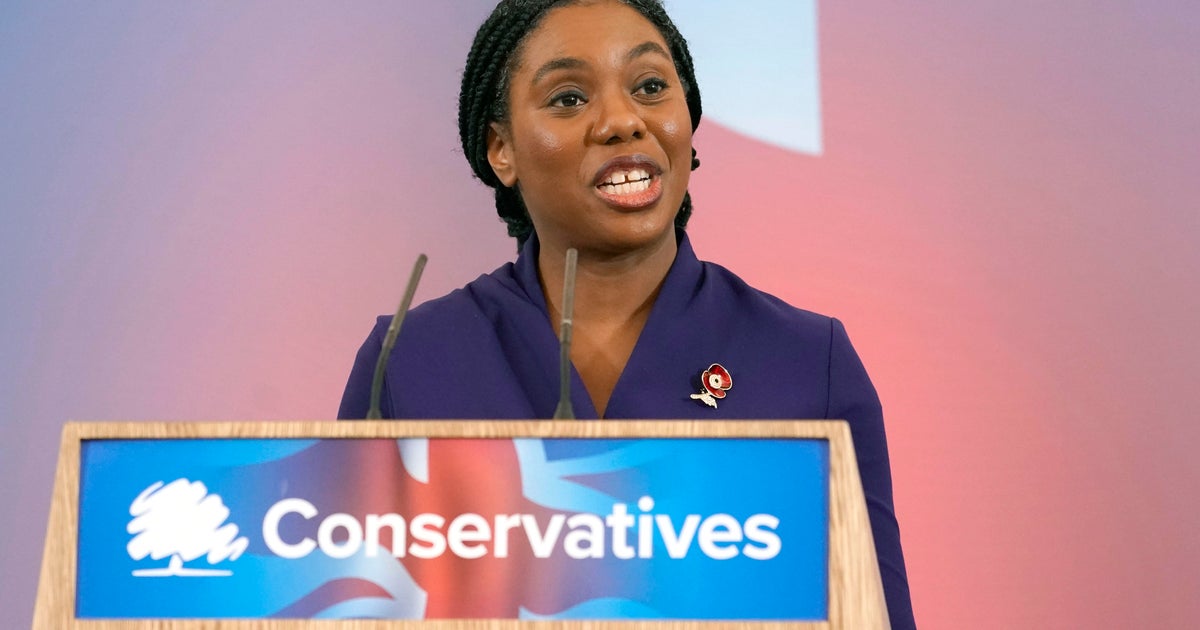CBS News
HELOCs vs. home equity loans: Everything to consider right now

Getty Images/iStockphoto
For most of the last two and a half years, home equity borrowing was one of the better ways to borrow money. As inflation surged and the federal funds rate rose alongside it, rates on borrowing products soared. And while home equity interest rates weren’t immune, they remained much lower than credit cards and personal loans thanks to the home in question serving as collateral.
But with the first cut to the federal funds rate in more than four years just issued — and others looking likely for when the Fed meets again in November and December — the economic climate is changing again. Understanding this dynamic and the potential for it to affect home equity loans and home equity lines of credit (HELOCs), then, prospective borrowers should take a broader look at these two products. Below, we’ll break down everything to consider for each right now.
See what home equity loan interest rate you could qualify for here.
HELOCs vs. home equity loans: Everything to consider right now
Not sure how to take the next step in your home equity borrowing process? Here’s what to think about for both of these products currently:
HELOCs
- A higher rate: HELOC interest rates, while almost three times cheaper than credit cards and many percentage points lower than personal loans are still a bit higher than home equity loans right now (averaging 8.68% versus home equity loans at 8.35% as of November 1). While that difference doesn’t seem major on paper, it could lead to a big difference in savings over a 10- or 15-year repayment period.
- A rate that could change: HELOCs have variable interest rates that change monthly. While that may not be a huge factor if they change by a negligible percentage, it could either become problematic when rates rise (as they did in recent years) or be advantageous now that rates are declining again. Either way, though, it could be a challenge to accurately budget without knowing exactly what your rate will be from month to month.
- A revolving line of credit: A HELOC works like a credit card in the sense that it’s a revolving line of credit. You’ll only pay interest, then, on what you actually use, not the full credit line approved. And if you use it for eligible home repairs, you may be able to deduct it from your taxes when you file your next tax return.
Explore your best HELOC options online today.
Home equity loans
- A lower rate: As noted, home equity loan interest rates are slightly lower than HELOCs right now. And while the difference between 8.35% and 8.68% is unlikely to make a major difference in your monthly payments, the savings will add up over time. You won’t need to be able to exploit a cooling rate climate as you would with a variable rate HELOC, however, so do your due diligence to find the lowest rate home equity loan possible.
- A fixed rate that may need to be refinanced: A cooling rate climate is a plus for borrowers, but for home equity loan users, it will come with a cost. That’s because home equity loan rates are fixed, and if rates fall after you’ve already secured your loan, as they seem likely to this November, you’ll have to refinance to get the lower, prevailing rate. That could amount to 1% to 5% of the total loan amount in closing costs. Depending on the amount borrowed, that could be a significant sum. If you can’t afford to pay to refinance, then, it may be worth taking the risk of a changing HELOC rate instead.
- Access to a large sum of money: The average home equity amount is approximately $330,000 right now, and most lenders will allow you to borrow up to 80% of your equity, leaving you with access to a large, six-figure sum to use as you see fit. But as the home market changes, that amount could rise or fall in response. So, if you know you need the money, now could be a good time to act.
The bottom line
HELOCs and home equity loans are smart and advantageous tools for homeowners right now. But they’re not especially simple to use or to open, and borrowers will need to take a smart approach to ensure that they’re both getting the best rate and product and that they’re not overleveraging themselves to secure it. By truly understanding the above elements of each product now, borrowers can better determine if this is their best recourse for accessing a large amount of financing today.
CBS News
Britain’s Conservative Party picks Kemi Badenoch as leader after crushing election defeat

Britain’s Conservative Party on Saturday elected Kemi Badenoch as its new leader as it tries to rebound from a crushing election defeat that ended 14 years in power.
The first Black woman to lead a major British political party, Badenoch (pronounced BADE-enock) defeated rival lawmaker Robert Jenrick in a vote of almost 100,000 members of the right-of-center Conservatives.
She got 53,806 votes in the online and postal ballot of party members, to Jenrick’s 41,388.
Badenoch replaces former Prime Minister Rishi Sunak, who in July led the Conservatives to their worst election result since 1832. The Conservatives lost more than 200 seats, taking their tally down to 121.
The new leader’s daunting task is to try to restore the party’s reputation after years of division, scandal and economic tumult, hammer Labour Prime Minister Keir Starmer’s policies on key issues including the economy and immigration, and return the Conservatives to power at the next election, due by 2029.
Alberto Pezzali / AP
“The task that stands before us is tough but simple,” Badenoch said in a victory speech to a roomful of Conservative lawmakers, staff and journalists in London. She said the party’s job was to hold the Labour government to account, and to craft pledges and a plan for government.
Addressing the party’s election drubbing, she said “we have to be honest — honest about the fact that we made mistakes, honest about the fact that we let standards slip.”
“The time has come to tell the truth, to stand up for our principles, to plan for our future, to reset our politics and our thinking, and to give our party, and our country, the new start that they deserve,” Badenoch said.
A business secretary in Sunak’s government, Badenoch was born in London to Nigerian parents and spent much of her childhood in the West African country.
The 44-year-old former software engineer depicts herself as a disruptor, arguing for a low-tax, free-market economy and pledging to “rewire, reboot and reprogram” the British state.
A critic of multiculturalism and self-proclaimed enemy of wokeness, Badenoch has criticized gender-neutral bathrooms and government plans to reduce U.K. carbon emissions. During the leadership campaign she drew criticism for saying that “not all cultures are equally valid,” and for suggesting that maternity pay was excessive.
Tim Bale, professor of politics at Queen Mary University of London, said the Conservative Party was likely to “swing towards the right both in terms of its economic policies and its social policies” under Badenoch.
He predicted Badenoch would pursue “what you might call the boats, boilers and bathrooms strategy …. focusing very much on the trans issue, the immigration issue and skepticism about progress towards net zero.”
Alberto Pezzali / AP
While the Conservative Party is unrepresentative of the country as a whole — its 132,000 members are largely affluent, older white men – its upper echelons have become markedly more diverse.
Badenoch is the Tories’ third female leader, after Margaret Thatcher and Liz Truss, both of whom became prime minister. She’s the second Conservative leader from a non-white background, after Sunak, and the first with African roots. The center-left Labour Party, in contrast, has only ever been led by white men.
In a leadership contest that lasted more than three months, Conservative lawmakers reduced the field from six candidates in a series of votes before putting the final two to the wider party membership.
Both finalists came from the right of the party, and argued they can win voters back from Reform U.K., the hard-right, anti-immigrant party led by populist politician Nigel Farage that has eaten away at Conservative support.
But the party also lost many voters to the winning party, Labour, and to the centrist Liberal Democrats, and some Conservatives worry that tacking right will lead the party away from public opinion.
Starmer’s government has had a rocky first few months in office, beset by negative headlines, fiscal gloom and a plummeting approval rating.
But Bale said that the historical record suggests the odds are against Badenoch leading the Conservatives back to power in 2029.
“It’s quite unusual for someone to take over when a party gets very badly beaten and manage to lead it to election victory,” he said. “However, Keir Starmer did exactly that after 2019. So records are there to be broken.”
CBS News
Saturday Sessions: Hippo Campus performs “Paranoid”

Watch CBS News
Be the first to know
Get browser notifications for breaking news, live events, and exclusive reporting.
CBS News
How the United States is celebrating the Day of the Dead

Watch CBS News
Be the first to know
Get browser notifications for breaking news, live events, and exclusive reporting.




